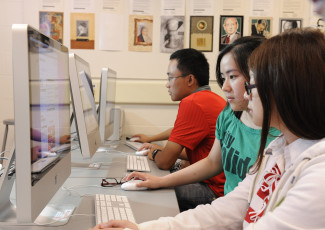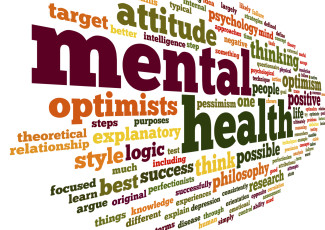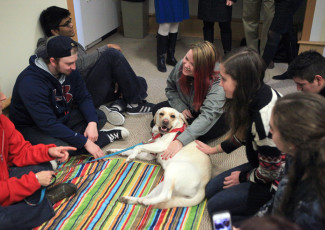College’s Online Community Is In Line With Its Mission
By Ellen Ullman
October 20, 2015
HACC, Central Pennsylvania’s Community College, is at the tech forefront because it has created an online community and offered virtual learning opportunities.
In 1989, HACC, Central Pennsylvania’s Community College, was sending distance-education courses on videocassettes through the mail. Today, the college’s virtual credits are the second-largest amount of credit delivery across all five campuses in the college’s 10-county service region.
In addition to for-credit courses, HACC offers free, noncredit iTunes U courses that are open to the public. There aren’t any grades, and most of the instructors include contact information.
So, how did one college become such an online pioneer?
A strategy is born for supporting online community
In early 2008, Qiquan Wang, who now serves as HACC’s coordinator of mobile learning, received money from the college’s innovation fund, and 32 instructors applied to learn how to make audio podcasts. The winning instructors received training, an iPod, and a microphone. The HACC instructors began making podcasts of lectures and posting them on iTunes U. The podcasts were simple recordings, but the faculty members were eager to expand learning beyond the region.
Within a few years, six of those faculty members were given the opportunity to participate in a new venture. “In January 2012, we were fortunate to be one of six institutions invited by Apple to pilot full courses on iTunes U,” says Amy Withrow, executive director of advancement and outreach for HACC’s Virtual Learning program. The other educational institutions were Duke, Stanford, Yale, MIT and Open University.
The iTunes U courses have a structure; they are divided into modules and include videos, PDFs and other instructional tools. The college has its own requirements as well. “Before we publish a course, it needs to include a syllabus or detailed outline, PDF lectures, video and audio,” Withrow says. “There must be assignments and self-graded assessments so students can monitor their progress.”
HACC now offers 25 full iTunes U courses and more than 75 iTunes U collections. In September 2014, the college reached the milestone of more than 1,000,000 total subscribers in its iTunes U courses.
People use the noncredit courses for a variety of reasons, Withrow says. Students in credit-bearing schools tend to use the classes for tutoring or extra help (particularly math). Other students may want to explore a topic just for fun. The youngest student who emailed HACC was an 8-year-old boy in China who was looking to get a head start on math.
Fulfilling the community college mission
HACC began posting courses online because the college wanted to educate people. The iTunes U free courses extend the college’s mission by providing additional access to learning.
“A lot of faculty come to community colleges because they believe in the mission of open access to education,” Withrow says. “Our iTunes U content is often created by a faculty member with a webcam at 11 p.m. There is no videographer or sound person or production team. They are used to teaching to a diverse student body, and it’s an honest feel of how they’re teaching. That’s what resonates, I think.”
The college will continue to add more online credit programs and is partnering with groups and agencies to help people beyond HACC’s 10-county footprint earn associate degrees. Additionally, students can take some of their courses online.
“Often, a student can get the majority of his or her classes at any of our five campuses near their home or workplace, but instead of driving an hour to another campus — particularly in the winter months — they can take a course or two online,” Withrow says.
On the iTunes U side, HACC faculty are starting to use the noncredit classes created as part of blended courses and are asking students to download the material for class discussions. “They are pilot-testing to see what their students can do with these courses,” Withrow says. “It’s great that they are seeing the courses in action.”










